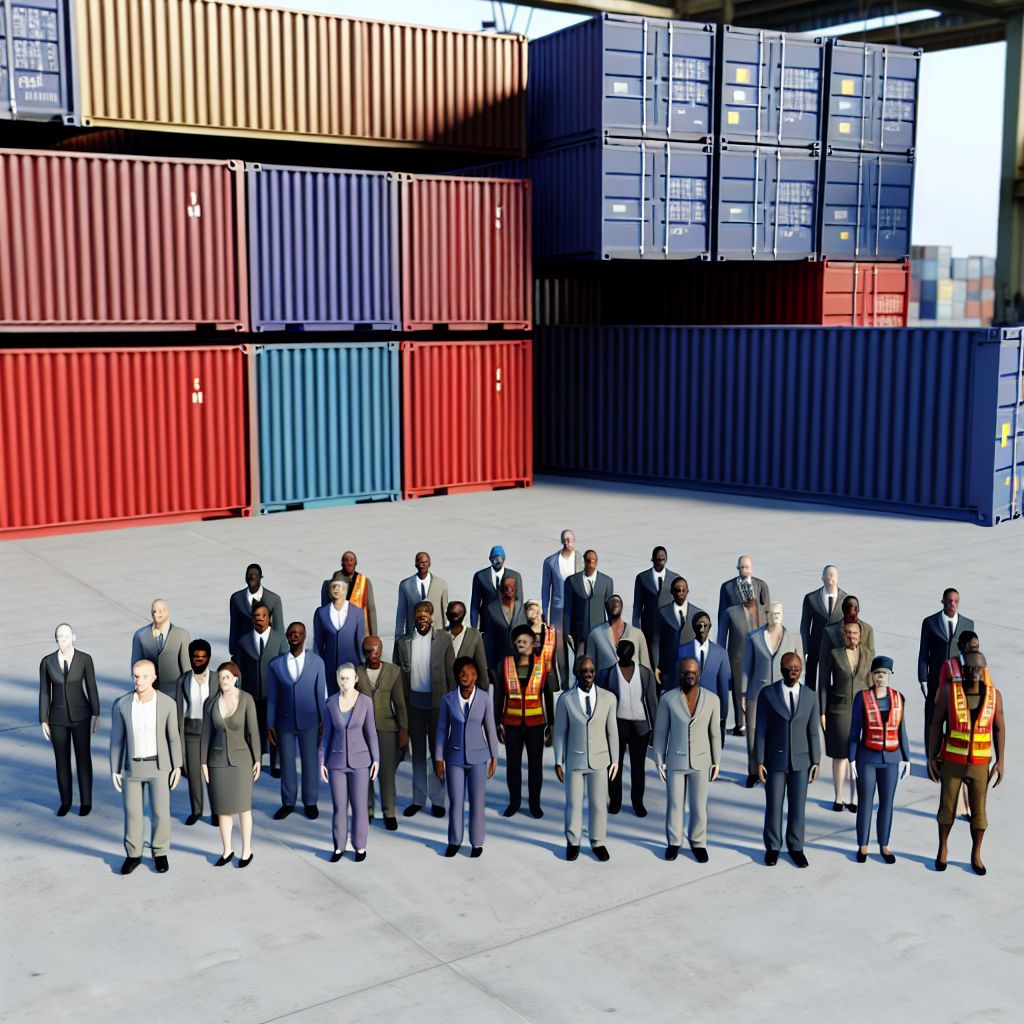Deutsch: Fracht / Español: Carga / Português: Carga / Français: Fret / Italiano: Merce
Freight in the maritime context refers to goods or cargo transported by ship over sea. This includes a vast range of products, from raw materials and commodities to finished goods, transported in bulk, containerized, or specialized forms.
Description

Maritime freight is a cornerstone of global trade, enabling the efficient and cost-effective movement of large quantities of goods across international borders. The process involves not only the physical transportation of goods but also encompasses logistics management, customs clearance, and regulatory compliance. The types of freight and methods of transportation are varied, often categorized into bulk cargo (like coal, grain, or oil), containerized cargo (transported in standard containers), and break bulk (goods shipped individually).
Application Areas
Maritime freight is critical in several areas of the global economy:
- International Trade: The majority of international trade by volume is conducted via maritime freight due to its cost efficiency for large volumes.
- Supply Chain Management: Ensuring the movement of materials and products from suppliers to manufacturers to distributors.
- Economic Development: Facilitating the import and export of goods, contributing significantly to national economies.
Well-Known Examples
Iconic examples of maritime freight include:
- The Panama Canal and Suez Canal: Key chokepoints in global maritime freight routes, facilitating the passage of cargo ships between oceans.
- Maersk Line: The world's largest container shipping company, known for its extensive fleet that plays a vital role in global maritime freight.
- Port of Shanghai: The busiest container port in the world, handling immense quantities of maritime freight.
Treatment and Risks
Handling maritime freight involves various challenges and risks:
- Logistical Complexities: Coordinating the schedules of ships, ports, and ground transportation.
- Regulatory Compliance: Adhering to international and national laws regarding cargo, including safety and environmental regulations.
- Economic Fluctuations: The demand for maritime freight services can be highly sensitive to global economic conditions.
Similar Terms
Related terms in the maritime freight context include:
- Bill of Lading: A legal document issued by a carrier to a shipper, detailing the type, quantity, and destination of the goods being carried.
- Cargo: More generally, the load of goods transported by a ship, plane, or other vehicle.
- Container Shipping: The method of shipping freight in standard-sized containers that can be easily transferred between ships, trucks, and trains.
Weblinks
- top500.de: 'Freight' in the glossary of the top500.de
- travel-glossary.com: 'Freight' in the travel-glossary.com
Articles with 'Freight' in the title
- Freight forwarder: Freight Forwarder in the maritime context refers to a company or individual responsible for organizing and coordinating the transportation of goods on behalf of shippers
- Freight Forwarding: Freight Forwarding: Freight forwarding in the maritime context refers to the logistics service provided by companies that organise the transportation of goods across international borders by sea
Summary
In the maritime industry, freight refers to the transport of goods across seas and oceans, integral to international trade and economic networks. This complex process is fundamental to global commerce, driven by advancements in shipping technology and logistics management.
--
Related Articles to the term 'Freight' | |
| 'Merchandise' | ■■■■■■■■■■ |
| Merchandise in the maritime context refers to goods or commodities that are transported by sea for trade . . . Read More | |
| 'Ship' at top500.de | ■■■■■■■■■ |
| A ship is any large Buoyant Watercraft. Ships are generally distinguished from boats based on size and . . . Read More | |
| 'International Trade' | ■■■■■■■■■ |
| International Trade: International trade in the maritime context refers to the exchange of goods, services, . . . Read More | |
| 'Forwarder' | ■■■■■■■■ |
| Forwarder in the maritime context refers to a company or individual that arranges the transportation . . . Read More | |
| 'Transporting' | ■■■■■■■■ |
| Transporting in the maritime context refers to the movement of goods, cargo, or passengers from one location . . . Read More | |
| 'Transport' | ■■■■■■■■ |
| Transport: In the maritime context, "transport" generally refers to the movement of goods and people . . . Read More | |
| 'Carriage' | ■■■■■■■■ |
| Carriage in the maritime context refers to the transport of goods and passengers by sea. This term encompasses . . . Read More | |
| 'Shipping and Logistics' | ■■■■■■■■ |
| Shipping and Logistics in the maritime context encompass the management, planning, and execution of the . . . Read More | |
| 'Harbour' at top500.de | ■■■■■■■■ |
| Harbour (UK-English. In US-English it is harbor) refers to a place on the Coast where ships, boats, and . . . Read More | |
| 'Shipping' | ■■■■■■■■ |
| Shipping refers to the process of transporting goods and services across bodies of Water, mainly through . . . Read More | |